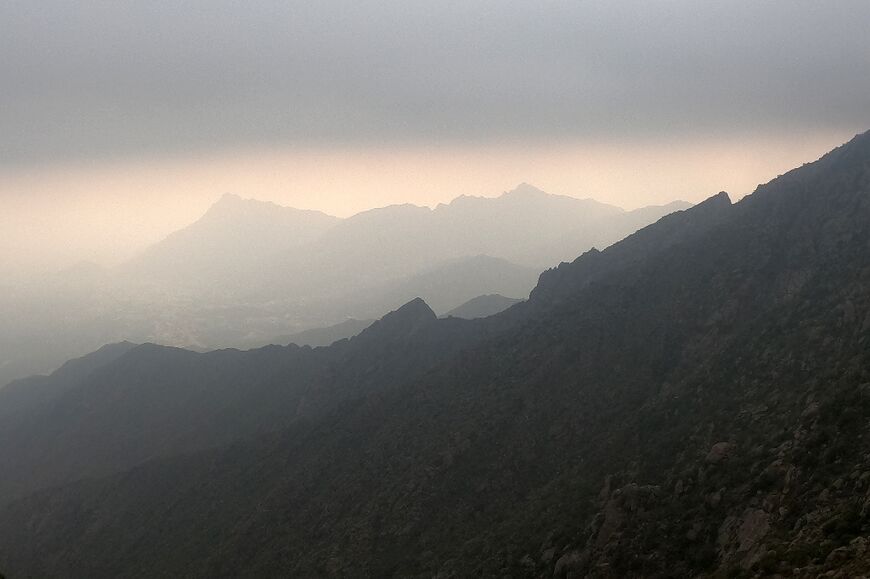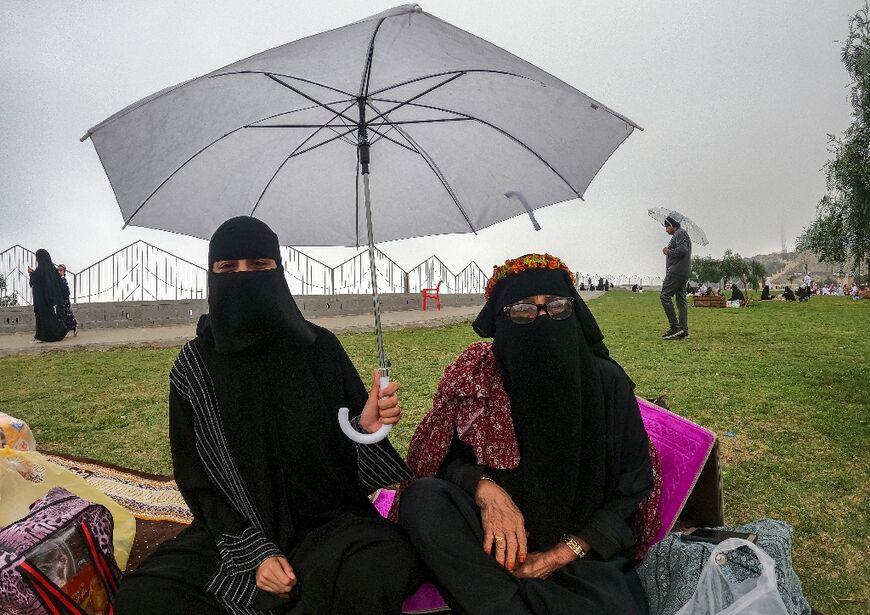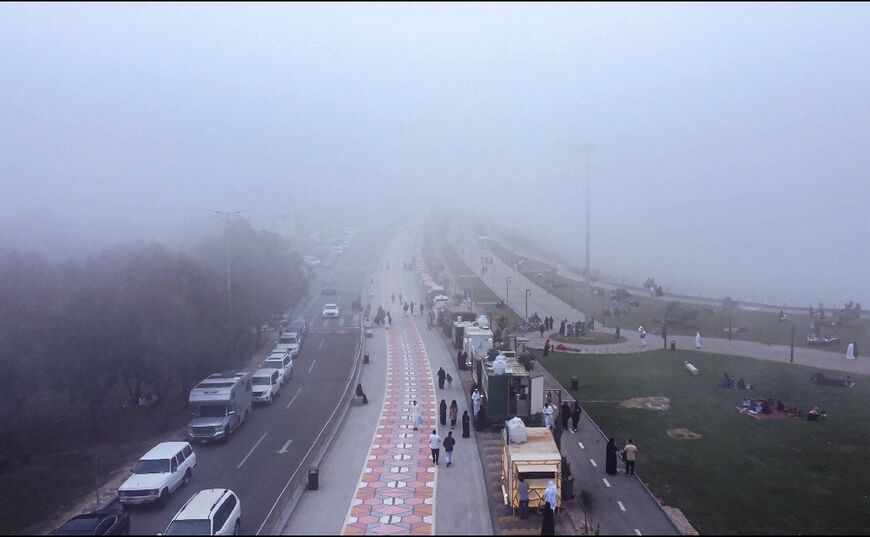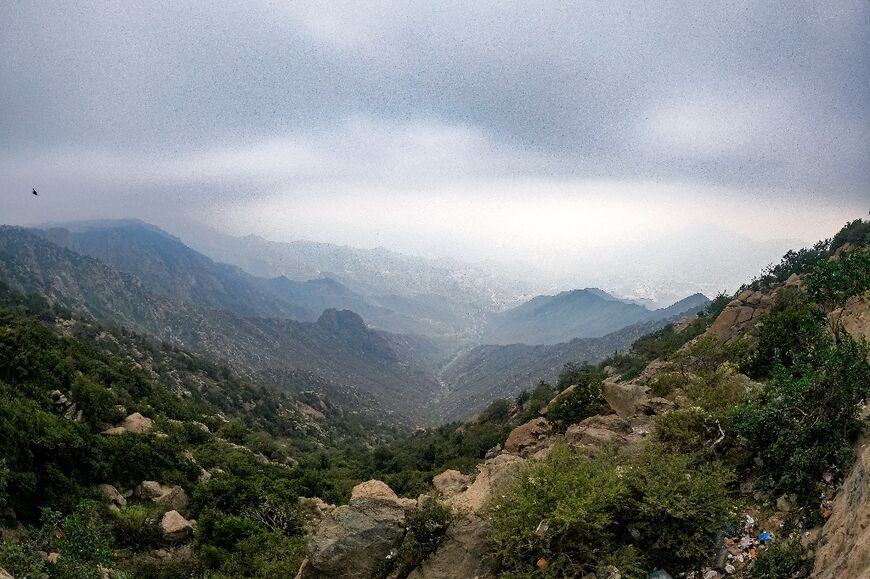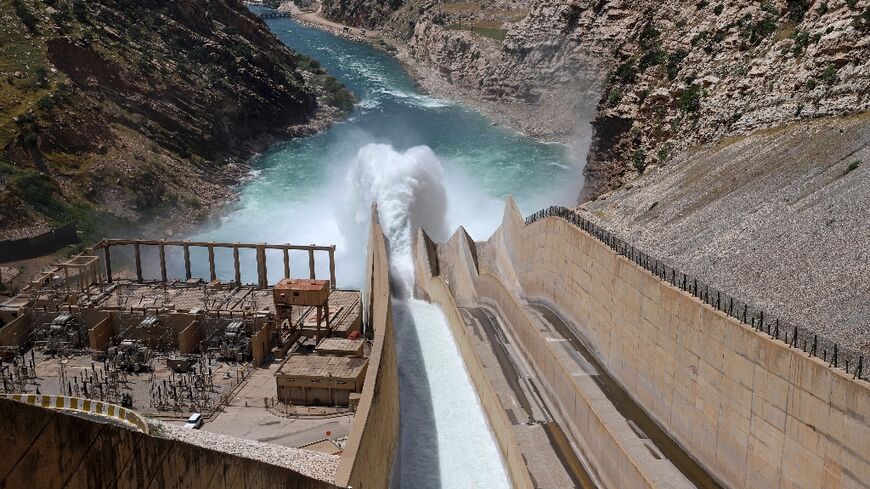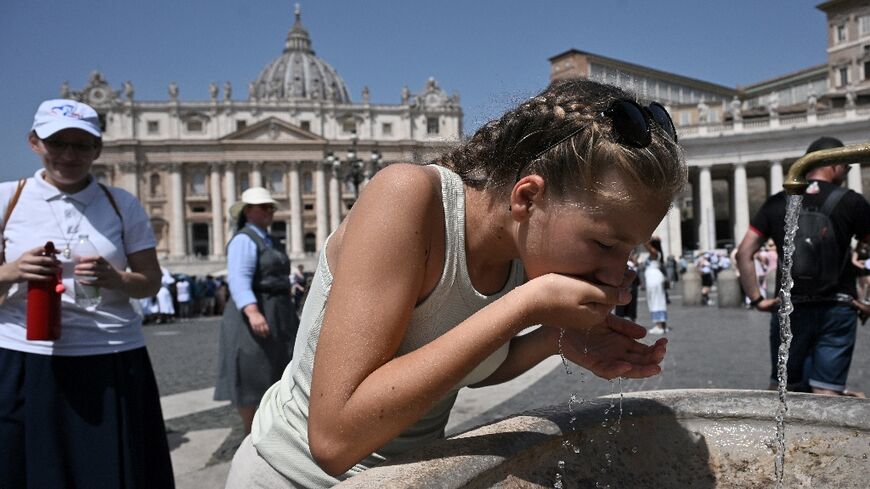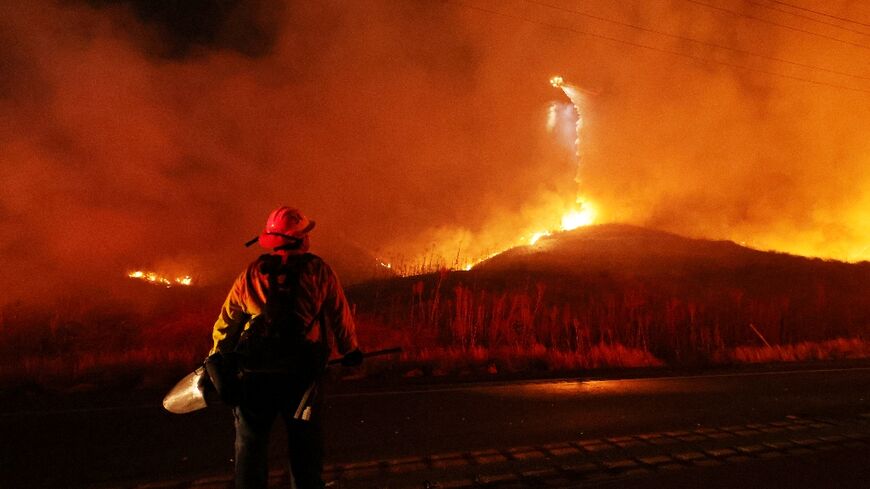Sweltering Saudis escape to mountainous 'City of Fog'
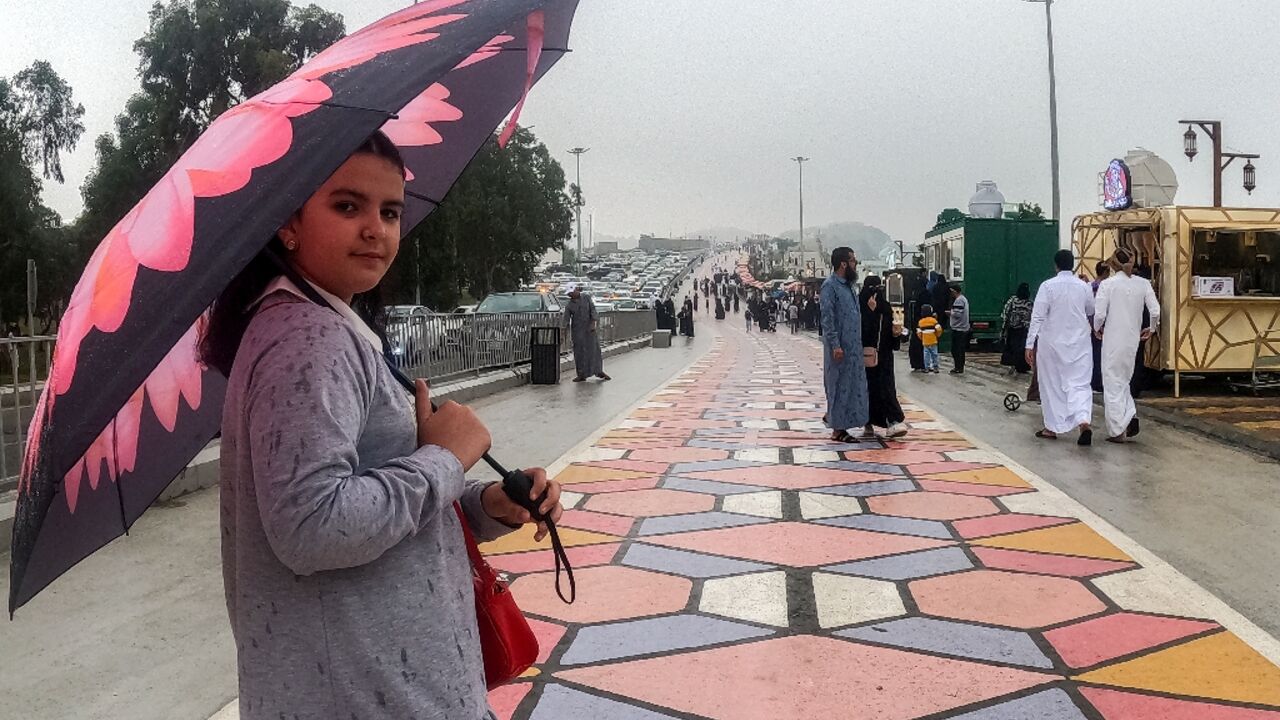
As Saudi Arabia swelters in sizzling desert temperatures, some are escaping to the "City of Fog" -- a mountainous oasis of cool where warm clothing is needed even in summer.
Sitting with friends on a picnic blanket, under light rain and a thick, swirling mist in Al-Namas, Abdullah Al-Enizi wears a body-warmer over his traditional white robes to guard against the chill.
The retreat, 2,800 metres (9,200 feet) above sea level in Saudi Arabia's rugged south, is in stark contrast to other parts of the vast, largely desert country where summer heat of up to 50 degrees Celsius (122 degrees Fahrenheit) is an annual challenge.
At Al-Namas, humid monsoon weather keeps temperatures below 30 degrees Celsius (86 degrees Fahrenheit), dropping as low as 15 degrees Celsius (59 degrees Fahrenheit) at night, as fog blocks out the sun over verdant hills.
"It's 46 degrees in Riyadh and only 20 here, it's 26 degrees lower," says Al-Enizi at the holiday destination, about 850 kilometres (530 miles) south-west of the Saudi capital.
"We're escaping the heat. Here, it's cool and the rain and fog are here nearly all the time," added the semi-retired Saudi, 45, who drove about 12 hours from Riyadh.
Around his group of friends, families enjoy the breeze as their children run around in the fresh air, rather than being cooped up in their air-conditioned houses as usual elsewhere in the country.
Clusters of holidaymakers in raincoats and woolly hats sip Arabic coffee and crowd under umbrellas, while kites flutter in the wind.
"Before we came, we packed all our winter things!" says Nouf, who did not want to give her surname, while doing up her daughter's coat.
Tourist authorities have built a "fog road" for hikers and cyclists traversing a high summit that overlooks the mist-shrouded mountains.
Khalaf Al-Juheiri travelled to Al-Namas with his wife and children from Tabuk, in Saudi Arabia's north, to enjoy the "cool weather".
"We really miss this weather when the temperature goes over 40 degrees in summer" in Tabuk, said the 33-year-old civil servant, covering his head against the rain.
- 'Visit Saudi' -
In 2020, a study published by the Science Advances magazine showed that the Gulf region has the hottest and most humid climate on the planet.
Because of global warming, some Gulf cities could become uninhabitable before the end of this century, experts say.
Thanks to its altitude and strong winds, Al-Namas escapes the worst of the increasing heat, says Hassan Abdullah, a Jordan-based official from the WASM weather technology company.
It has become a prized destination at a time when Saudi authorities, searching for new income streams apart from oil, are heavily promoting domestic and international tourism.
The 'Visit Saudi' promotion is in full swing just three years after tourist visas were first made available for foreign visitors in 2019.
As plane fares surge after the pandemic, Saudi families spent 80 billion riyals (about 21 billion euros) on domestic travel last year, a 30 percent increase from 2019, ministry of tourism figures show.
"Summer is the peak tourist season, going from May to October," says Abdullah Al-Shahri, a hotelier at Al-Namas where winter temperatures sometimes plunge to zero degrees.
At the top of a hill that overlooks the green valley, Mushabab Al-Omari takes in the view, sitting next to his wife.
"I've been here nearly three months," says the retiree, "and I'm ready to stay another four or five months if the weather stays like this."


